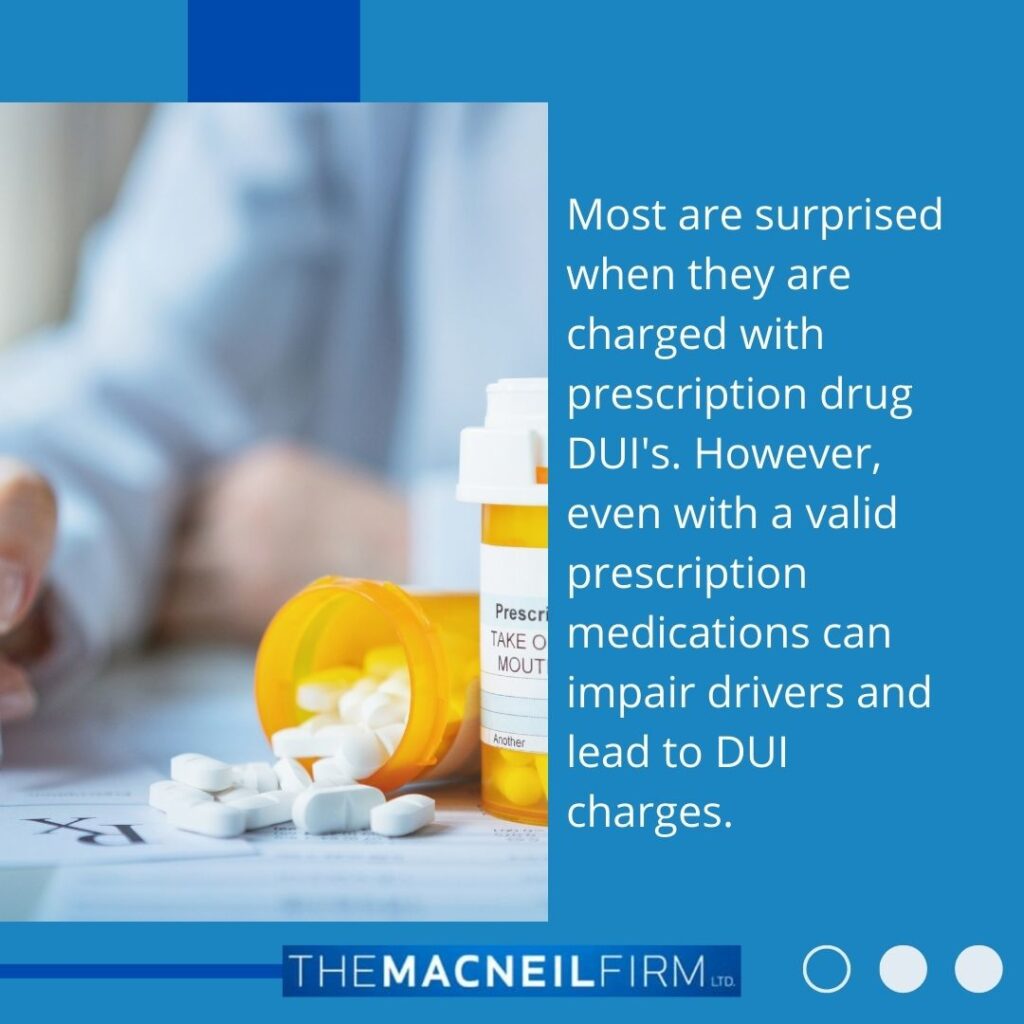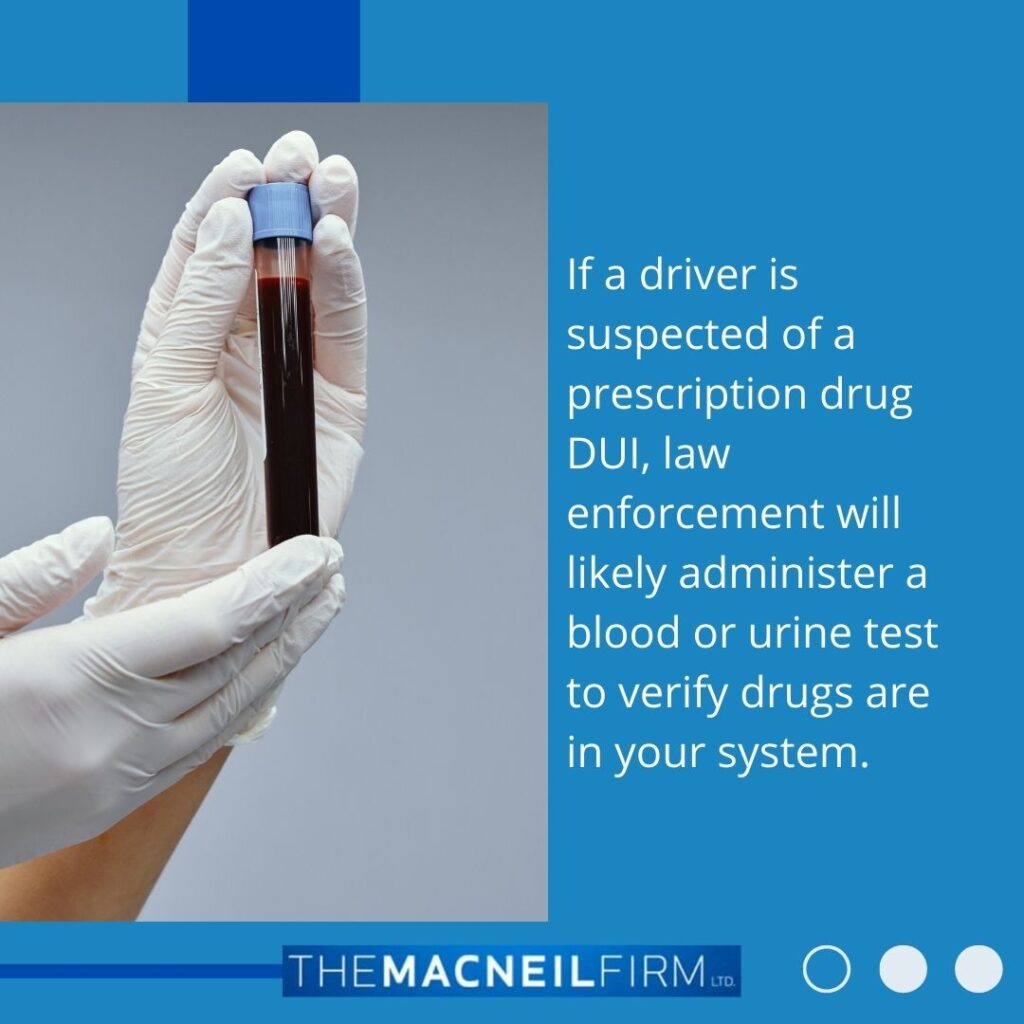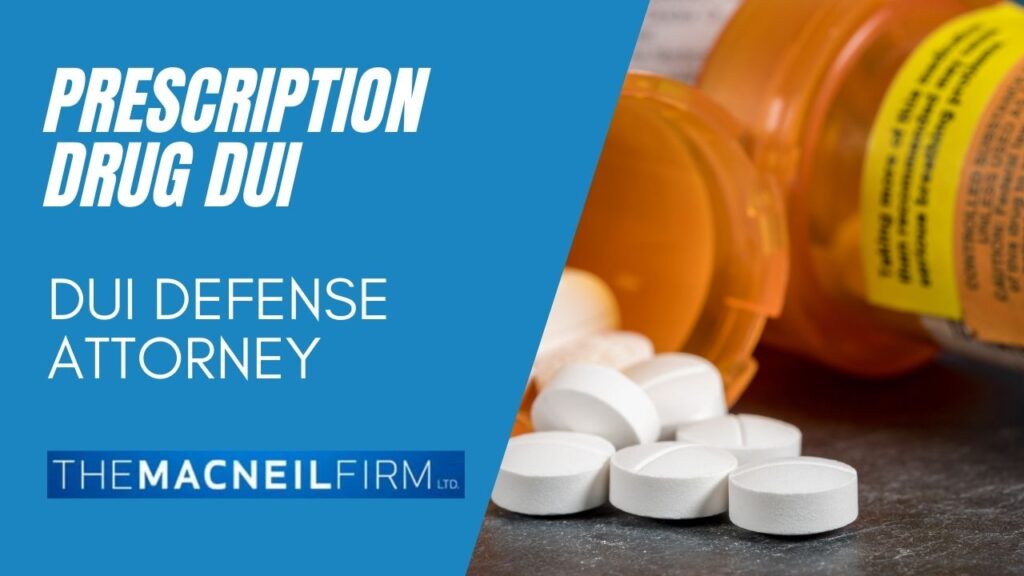Most are surprised when they are charged with prescription drug DUI’s. A lot of them think, “How can I be arrested for taking a drug that was prescribed to me by a doctor?” If this situation arises, you need a DUI defense attorney to help you. At The MacNeil Firm, we provide representation for all kinds of traffic violations and have the experience to help you. Call us today at 708-218-0947 for a free consultation.
It is really difficult for most people to understand that a valid prescription is not a get-out-of-jail free card. The situation that most people get in trouble with is when they are still ingesting a new medication or if they are not following the prescription dose correctly and it impairs their sensory perceptions.
How Do Police Officers Arrest Someone For A Prescription Medication DUI?
Most DUIs based on prescription drugs usually start off the same as DUIs based on alcohol, and that is, with some sort of stop, based on an alleged traffic violation or some other poor driving observed by the police officer. From there, if the officer does not notice an odor of alcohol or observe any open alcohol containers in the vehicle, they then will proceed to ask questions about drugs, both illegal and prescribed, because many people who are questioned will openly admit they are taking prescription medications, not thinking that there could be a problem.
Are Field Sobriety Tests Utilized In Prescription Medication DUIs?
Many police officers will still administer the standardized field sobriety tests in drug based DUI cases. But those field sobriety tests are only valid for detecting alcohol intoxication, which makes them completely irrelevant in a drug based DUI situation. Knowing this, that can be a very effective tactic that I use in all my DUI drug cases. Although the alcohol based standardized field sobriety tests do not apply to drugs, the National Highway Traffic Safety Administration has developed a different program to detect the drug intoxication and it is called the DRE or Drug Recognition Expert Program.
It is a special training program for police, but in Illinois, there are a very few police officers who are trained with that DRE program. It is rare for me to see a case involving DRE. But a lot of times, police officers, even if they suspect that somebody is under the influence by a prescription drug, they might still have them take a breathalyzer just to rule that out. Often times, our experienced dui defense attorney, can challenge this type of testing for a prescription dui and we have had a lot of success doing so.
At What Point Do Police Officers Test The Suspect For Drugs In Their System?
The chemical test and the rules for that are the same for DUIs based on prescription drugs as they are in alcohol based DUIs. That chemical test is key to the prosecution’s case and maybe more so in a prescription drug case. By chemical test, in this situation, I mean blood or urine for the prescription drugs. We know that the standardized field sobriety tests do not apply and most officers are probably not trained as a drug recognition expert. Therefore, they really want to get their chemical test done as soon as possible to lock up their case against you.
If they have a positive chemical test, that is going to be a very difficult type of case to challenge. However, with our DUI defense attorney at The MacNeil Firm, we will work to find ways to get the charges reduced or dismissed all together. We will do everything we can to protect your rights.
You can refuse the tests, however the consequences are the same for all DUIs whether it is alcohol based or drug based. Generally for a first offender, refusing the chemical test will result in a twelve month driver’s license suspension. It is possible under some circumstances for police to obtain a warrant and try and do a non-consensual blood test. It is pretty rare to see that in Illinois, but there are some counties that, on different weekends or different times of the year, they will have a judge on call for the weekend and they will get warrant, but overall, it is rare to see.
Our DUI defense attorney is here to help you
In this context, if they are taking a chemical test for a prescription drug DUI they are typically just trying to test to see if there is any amount of a controlled substance there because the amount of it is irrelevant. You can have a trace amount and that could be enough for a judge or a jury to find you guilty. But, those blood tests are only as reliable as the equipment used, the person performing it and the method used for the test.
That is why in every blood, urine and breath test case, our DUI defense attorney goes through the evidence very carefully to see if anything was done improperly. If there is a defect in the testing, there is a reasonable chance I might be able to have that excluded from trial.
That is particularly important in DUIs based on chemical tests. In cases where the blood test is admitted, those are very difficult to obtain a not guilty verdict. If the blood test is excluded, there is a much higher probability that my client will be found not guilty. These are obviously generalizations and every case is determined by the particular facts involved, but it does hold true overall.




